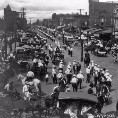New Prototype Detector - My First Analog Attempt
-
Similar Content
-
- 25 replies
- 1,056 views
-
- 6 replies
- 401 views
-
- 42 replies
- 5,360 views
-
- 7 replies
- 13,901 views
-
- 21 replies
- 49,193 views
-
- 5 replies
- 1,293 views
-
-






Recommended Posts
Create an account or sign in to comment
You need to be a member in order to leave a comment
Create an account
Sign up for a new account in our community. It's easy!
Register a new accountSign in
Already have an account? Sign in here.
Sign In Now